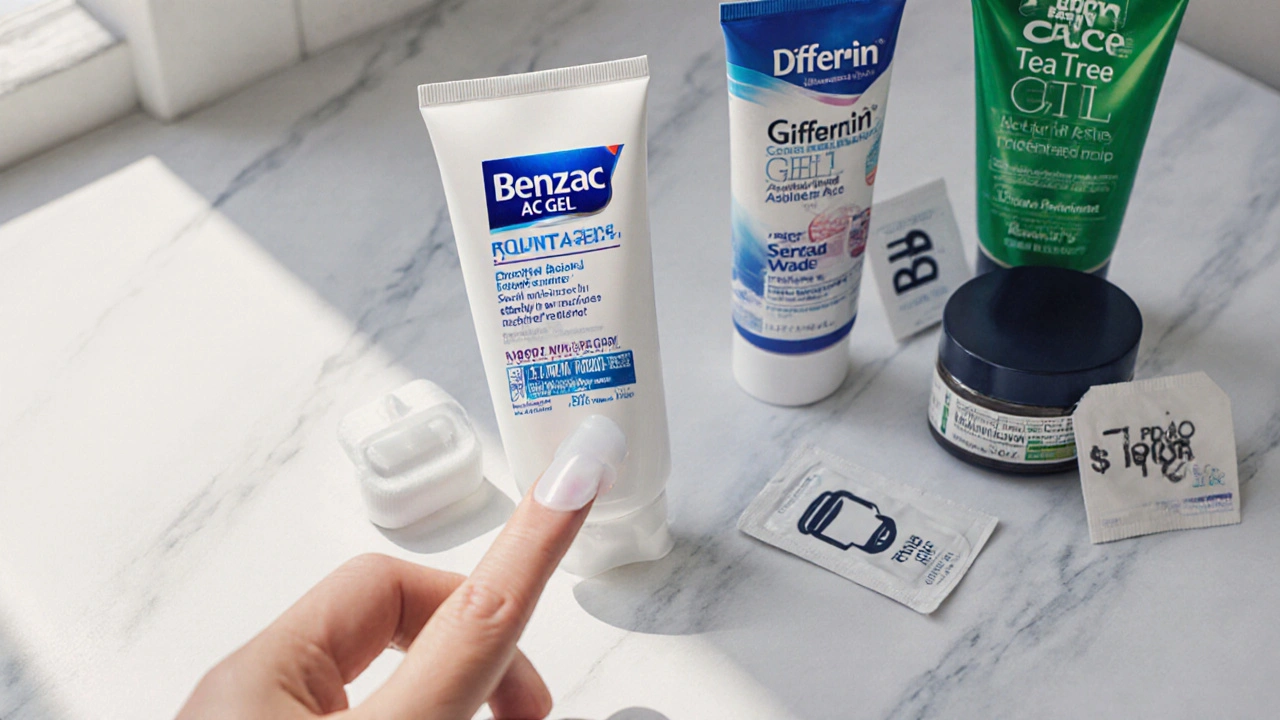benzoyl peroxide: uses, safety, and everything you need to know
When working with benzoyl peroxide, a white, crystalline compound that releases oxygen when it contacts skin. Also known as BP, it is a staple in dermatology because of its antibacterial and keratolytic action. Over‑the‑counter gels and creams let people start mild acne treatment at home, while stronger concentrations are reserved for prescription‑strength formulas used by professionals.
One of the biggest reasons benzoyl peroxide shows up in skin‑care discussions is its effectiveness against acne vulgaris, the common condition marked by pimples, blackheads, and inflamed lesions. The compound targets the bacteria that lives deep in pores, reduces oil buildup, and helps unclog blocked follicles. Dermatologists often pair it with topical antibiotics or retinoids for a multi‑pronged attack, and many OTC acne kits use it as the primary active ingredient.
How benzoyl peroxide works on a molecular level
The magic happens when benzoyl peroxide breaks down into reactive oxygen species, highly oxidative molecules that damage bacterial cell walls and reduce inflammation. This oxidative burst kills Cutibacterium acnes, the microbe most linked to acne flare‑ups, while also softening the keratin plug that blocks pores. Because the reaction is surface‑limited, the deeper layers of skin stay largely untouched, which is why the side‑effects are usually mild and temporary.
Beyond acne, the same exfoliating power makes benzoyl peroxide a popular agent in chemical peeling, a controlled skin‑renewal technique that removes outer dead cells to reveal smoother, brighter skin. In low concentrations it gently resurfaces the epidermis, while higher strengths, administered by professionals, can treat superficial acne scars and hyperpigmentation. The dual action of bacterial kill and skin turnover gives it a unique spot in many aesthetic treatment plans.
Safety wise, most users experience mild redness, dryness, or a tingling sensation that fades as the skin adapts. Starting with a lower concentration and applying a moisturizer can keep irritation in check. People with very sensitive skin or certain allergies should consult a dermatologist before using it regularly. Armed with these basics, you’ll know what to expect from each product, how to combine it with other treatments, and when to step up to a prescription‑strength option. Below you’ll find a range of articles that dig deeper into specific uses, side‑effect management, and the latest research on this versatile compound.

Benzac AC Gel vs. Top Acne Treatment Alternatives - Full Comparison
Haig Sandavol Oct 9 16A detailed side‑by‑side look at Benzac AC Gel versus top acne treatment alternatives, covering ingredients, price, skin type fit, usage tips and FAQs.
More Detail